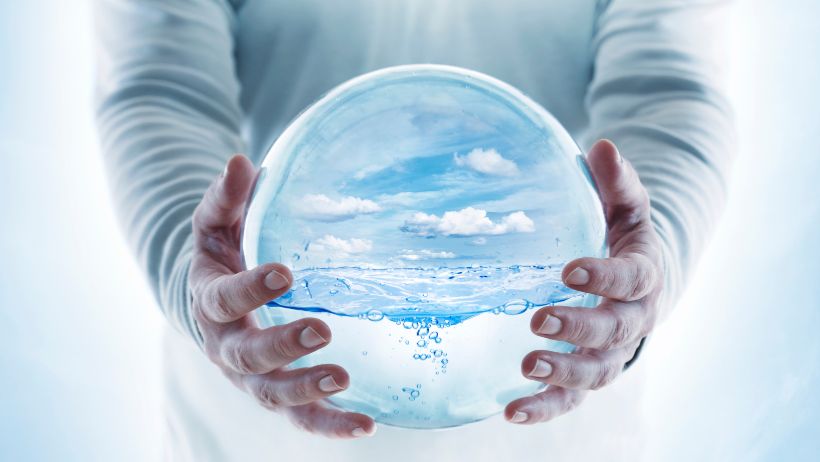
The Vital Importance of Water Conservation
Water is essential for life, yet this precious resource is becoming increasingly scarce due to factors such as climate change, population growth, and pollution. As our global population continues to expand and water scarcity becomes a pressing issue in many regions, the need for water conservation has never been more urgent. In this article, we’ll explore why saving water is crucial and provide practical tips for conserving water at home.
Why Do We Need To Save Water
1. Preserving Ecosystems: Water is not only vital for human survival but also essential for maintaining healthy ecosystems. Rivers, lakes, wetlands, and oceans support a diverse array of plant and animal species, and water conservation efforts help protect these valuable habitats.
2. Mitigating Water Scarcity: Many regions around the world are facing water scarcity due to factors such as overuse, pollution, and climate change. By conserving water, we can help ensure that future generations have access to an adequate and reliable water supply.
3. Reducing Energy Consumption: Pumping, treating, and heating water requires significant energy resources. By using water more efficiently, we can reduce energy consumption and lower our carbon footprint, helping to combat climate change.
4. Protecting Public Health: Clean water is essential for drinking, cooking, and sanitation. By conserving water and reducing pollution, we can help safeguard public health and prevent waterborne diseases.
How to Save Water at Home
1. Fix Leaks: Check for leaks in faucets, toilets, and pipes, and repair them promptly. A dripping faucet or running toilet can waste a significant amount of water over time.
2. Install Water-Saving Fixtures: Install low-flow faucets, showerheads, and toilets to reduce water usage. These fixtures are designed to maintain water pressure while using less water, saving both water and energy.
3. Take Shorter Showers: Limit your shower time to conserve water. Consider installing a water-efficient showerhead to further reduce water usage while showering.
4. Turn Off Faucets: Turn off the faucet while brushing your teeth, washing dishes, or scrubbing vegetables. This simple habit can save gallons of water each day.
5. Collect Rainwater: Install a rain barrel to collect rainwater for watering plants and gardens. Rainwater harvesting is an eco-friendly way to reduce reliance on municipal water supplies.
6. Water Wisely: Water your lawn and garden early in the morning or late in the evening to minimize evaporation. Use a watering can or drip irrigation system to target plants’ roots and avoid overwatering.
7. Reuse Water: Collect and reuse water from activities such as rinsing fruits and vegetables or washing dishes. This “gray water” can be used for watering plants or flushing toilets.
8. Upgrade Appliances: Invest in water-efficient appliances such as dishwashers and washing machines. Look for ENERGY STAR® certified models, which use less water and energy than standard appliances.
By adopting these simple water-saving practices at home, we can all play a part in conserving this precious resource for future generations. Every drop saved makes a difference in protecting our planet’s water supply and ensuring a sustainable future for all.
Water-Saving Tips for Mealtime Utensils
Reducing the number of utensils used during meals can contribute to water conservation efforts. Using fewer utensils means fewer items to wash, which in turn reduces water usage. Here are a few practical tips to minimize utensil usage and conserve water:
1. Opt for Multipurpose Utensils: Choose utensils that can serve multiple purposes to minimize the need for additional items. For example, a large spoon can be used for both stirring and serving dishes.
2. Share Utensils: When dining with others, consider sharing utensils when possible. This not only reduces the number of utensils used but also fosters a sense of community and connection during meals.
3. Use Reusable Utensils: Whenever possible, choose reusable utensils over disposable ones. Reusable utensils can be washed and used multiple times, reducing waste and conserving resources in the long run.
4. Plan Meals Mindfully: Plan meals that require minimal utensils or can be eaten with hands, such as finger foods or one-pot meals. This not only reduces utensil usage but also simplifies meal preparation and cleanup.
5. Practice Portion Control: Serve food portions that can be easily managed with fewer utensils. Avoid serving oversized portions that may require additional utensils for cutting or serving.
6. Rinse Utensils Efficiently: When washing utensils, use water efficiently by rinsing them quickly under running water or using a basin of water instead of continuously running the tap.
By adopting these practices, we can all contribute to water conservation efforts while enjoying our meals with minimal impact on the environment.
Why Conserve Water?
There are countless reasons why conserving water is crucial:
- Limited freshwater: Only 2.5% of the Earth’s water is freshwater, and much of that is inaccessible in glaciers or ice caps. We rely on the remaining freshwater for drinking, sanitation, agriculture, and industry.
- Growing demand: With a rising population, the demand for water is constantly increasing. This puts strain on existing water resources and can lead to shortages.
- Climate change: Climate change is altering weather patterns, leading to more droughts and floods. This disrupts the natural water cycle and makes it harder to predict and manage water availability.
- Pollution: Water pollution from chemicals, fertilizers, and waste can contaminate freshwater sources, making them unusable for drinking or other purposes.

Comments are closed.